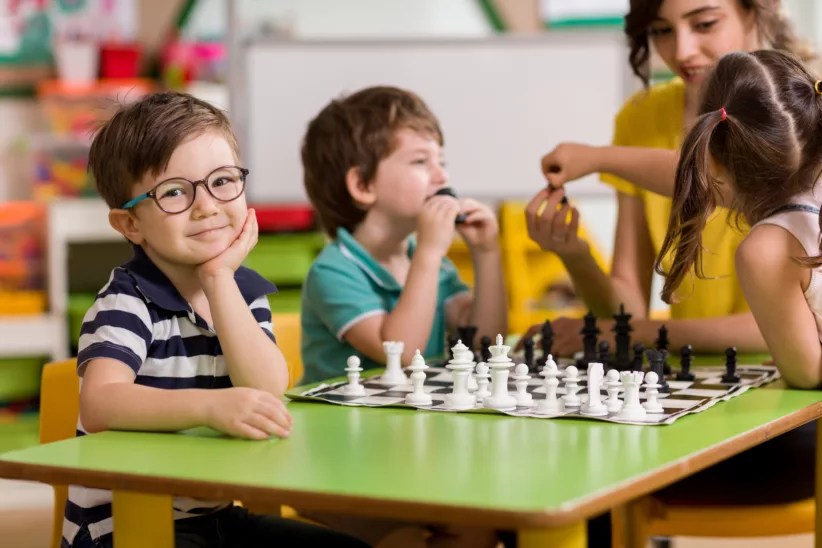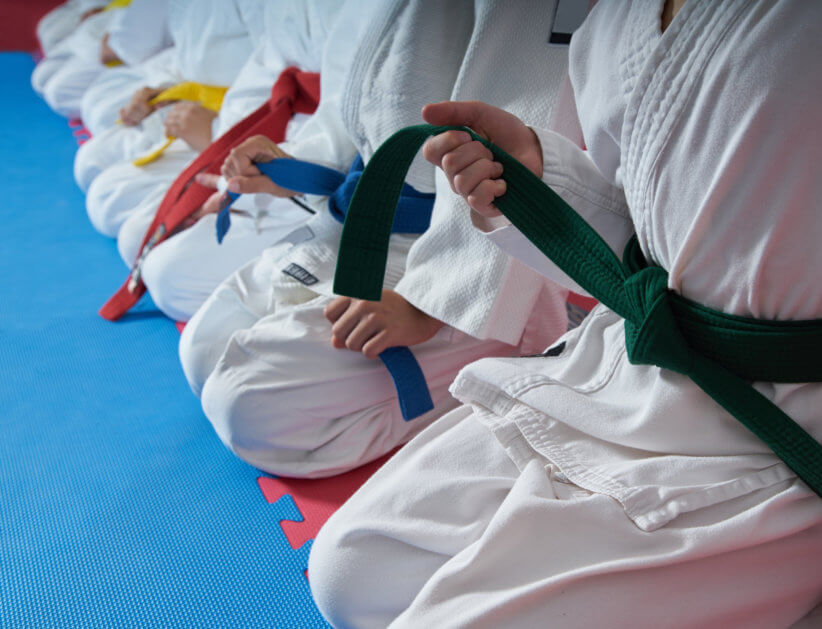
Editor’s Note: For a list of the language learning programs mentioned here, be sure to scroll all the way down to the end of this story. And for more language classes for children in the city, visit our new Classes Search Directory HERE!
As bilingualism has become a major objective in today’s classrooms, more parents are wondering how they can support their children’s language-learning outside of school—especially if the child is studying a language that the parent doesn’t know. To help parents support their child’s language studies “en casa,” we asked experts from both in-school and extracurricular language programs across the city to share some of their tried-and-true tips and tricks.
Lay a strong foundation in the first language.
According to Leslie Woods and Carolyn O’Brien, primary English teachers at the Lycee Francais de New York, a child’s mastery of their first language is crucial for success with a second language. “To learn a second language well, children need to have a strong foundation in their first language, and parents are an essential part of that,” Woods and O’Brien wrote in an email. “Use higher- level vocabulary in the first language and teach your child to be precise with his or her word choices.” For younger children in particular, Nancy Schulman, director of the Early Learning Center at Avenues: The World School, stresses the importance of parents setting a good linguistic example. “Modeling good language by talking slowly to your child using clear articulation and expressive tones,” she says.
Be open and adventurous when it comes to engaging with different cultures.
Tribeca Language founder Maurice Hazan grew up in a trilingual family in Paris, France, and attributes his own knack for encoding languages to, in part, to his parents’ open attitudes and the diversity of their dinner table. “We ate foods from all over the world,” Hazan says. “Too often do I see children’s tastes buds unreceptive to a different experience. Language and culture are one. If you have no curiosity for other cultures, the ground to sew the seed will not be fertile.” This goes for all languages, but when it comes to Mandarin Chinese, Planet Han Chinese founder Irene Coeny says: “Be adventurous: take the entire family to places your child can practice Mandarin on a regular basis, whether it’s Chinatown, a local Chinese restaurant, or further away.”

Sing together in the new language.
When engaging a child in their new language at home, it’s important to keep it fun and playful. “The most important element in the ability to develop two languages starts with helping children to appreciate the experience of communication—talking and expressing oneself should be seen as a fun, joyful, and also serene,” says Lycee Francais Primary School director Vannina Boussouf. Singing songs in the new language is one simple way to help the child learn more quickly, and joyfully. “Sing as many songs as you can to your child in the target language,” says Verónica Braun, the founder and director of ¡HOLA!, a Playgroup in Spanish. “Your child will want to hear the song, when he likes it, over and over again.” Francois Thibaut, the founder of the Language Workshop for Children, emphasizes the importance of song and rhythm for creating positive associations with the meaning of words. “Songs and melodies are invaluable tools that help children attach pleasant feelings to word meaning,” he says.
Help them practice…
“Make time for your child to practice at home,” says Emily Marks, the China Institute’s Children and Youth Program assistant. “Do homework together, practice dialogues, learn an exchange like: ‘Good Morning,’ ‘How are you?’ or: ‘What would you like for breakfast?’ This requires your child to respond, and if it’s breakfast, both of you can learn the names of your favorite foods.” At home as well as on-the-go, flashcards can be an incredibly useful tool. “Pack flashcards with you when you go out,” Marks adds. “Those five minutes in the line at the grocery store, or even quiet time in the park can be valuable practice time.”
…But don’t correct their mistakes.
“Children must be willing to take risks and speak up,” Coeny says. “Encourage your child to speak the language without worrying about making mistakes. In the beginning, being bold enough to speak a few words is more important than having perfect pronunciation and grammar.” Schulman adds: “Being sure not to correct mispronunciations—simply model the correct pronunciation instead.”
Create opportunities for your child to interact in the second language on their own.
“We often guide parents who do not speak the second language not to force their children to speak the second language with them, but rather to find fun and natural ways for them to use it on their own,” wrote Woods and O’Brien. Finding a playgroup in the target language is one such opportunity for them to speak the second language with their peers. Childcare is another opportunity to introduce natural conversation in the target language. “If you don’t speak the target language at all, find a caregiver, nanny, friend, or tutor to spend time with the child, speaking only in the target language,” suggests Sharon Huang, the founder of the Hudsonway Immersion School. If you or your partner does speak the target language, associating one caregiver with one language can be an effective method. “This approach—where a child associates his mother with Italian, his father with German, and his caregiver with French, for example—helps the child become multilingual without confusing the different languages,” she says. ”If you have a native-speaking nanny, ask her to speak her language exclusively to the child.”
Go online for supplemental materials.
Whatever the language your child is learning, the web is your friend when it comes to finding additional tools for practice, songs, videos, and more. Dr. Ursula Breitter, the head of the German-American School, says she often directs parents to age-appropriate learning series on YouTube “when parents ask how they can augment and reinforce what children learn in the classroom.” Your child’s instructor should be able to provide recommendations in their target language. “Most of the songs we use are pretty common in China (think ‘Wheels on the Bus’ for American children) and can be found on YouTube,” says Jamie Keyte, the founder of Manhattan Mandarin. “Try searching for songs like ‘Heads, shoulders, knees and toes’ or ‘Two Tigers’ in Mandarin! Parents should be able to pick up on these songs fairly quickly and can sing them at home with their young learners.”
Where To Master A New Language
Avenues: The World School
Bilingual Birdies
The China Institute
Collina Italiana
Ecole International De New York
El Taller Latin Americano
French Institute Alliance Francaise
German American School
¡HOLA!, A Playgroup in Spanish
Hudsonway Immersion School
I’m Bilingual!
Instituto Cervantes
La Petite Ecole
La Scuola di’Italia Gugliemo Marconi
The Language Workshop for Children
Lycee Francais de New York
Manhattan Mandarin
Mi Manzana
PandaTree
Planet Han
Tribeca Language





















